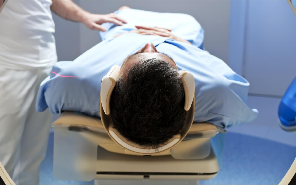

Delayed Treatment of Spinal Stenosis
Because Mr S’s spinal stenosis was not identified during his initial MRI, he underwent a lengthy period of investigation that delayed corrective surgery by 12 months. Read on to see how we helped our claimant secure a fair settlement for his extended pain and suffering.
- Home >
- Case Studies >
- Delayed Treatment of Spinal Stenosis
Background
Mr S developed lower back pain for which he consulted his GP. He was prescribed rest and painkillers. The back pain did not resolve and, over the next couple of weeks, he also developed severe pain in his legs, stiffness and loss of control of his legs. He again consulted his GP, who prescribed stronger painkillers. Mr S's symptoms continued to worsen and he consulted his GP for the third time. The GP then suspected Cauda Equina Syndrome and referred him to the local hospital where he was admitted.
At the hospital, Mr S underwent an MRI of the lumbar and sacral spine which showed no evidence of Cauda Equina Syndrome or overt nerve root compression. However, it did identify disc bulges at L2/3, L3/4 and L4/5.
Mr S's symptoms continued and he underwent a neurology review, following which the plan was to image the whole spine to exclude spinal pathology. Mr S underwent an MRI of the cervical thoracic spine, which was reported as showing no orthopaedic cause for his symptoms. He was referred back for further neurological review.
The neurologists arranged a lumbar puncture and EMG tests. Mr S was then diagnosed as suffering from an uncommon form of Guillain-Barre syndrome, for which he underwent treatment before being discharged from hospital.
Following discharge from hospital, Mr S was kept under neurological review but there was little improvement in his symptoms. He sought a second opinion from another orthopaedic and spinal surgeon, who reviewed the existing radiology and advised that Mr S had moderate to severe spinal stenosis. He advised facet joint injections followed by lumbar decompression surgery.
Mr S underwent the facet joint injections with a good response, but the symptoms returned. Therefore he underwent the surgery, after which he experienced immediate pain relief and slowly regained strength in his legs.
The MRI scan of the cervical thoracic spine was wrongly reported as it did show spinal stenosis. Had that MRI been accurately reported, Mr S would have avoided lengthy and unnecessary neurological investigations and would have undergone lumbar decompression surgery 12 months earlier. On this basis, a delayed treatment claim was pursued
Settlement
The Defendant denied breach of duty and causation in their Letter of Response, but then settled this spinal injury claim before the issue of court proceedings for £25,000.
This case was led by Corrina Mottram.
NOTE: While our case studies are designed to give an indication of the outcomes that can be achieved in these circumstances, the compensation awarded in individual cases can vary significantly due to a range of factors, including effects on life expectancy, the severity of the clinical negligence that took place, and the financial impact.
Featured delayed treatment case studies
Featured delayed treatment insights





